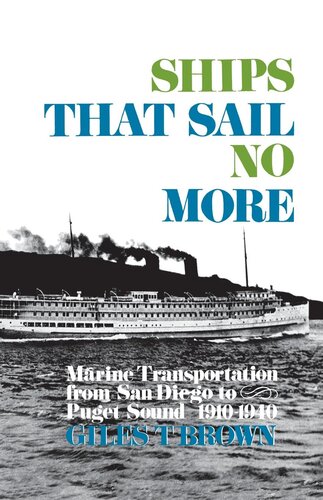

Most ebook files are in PDF format, so you can easily read them using various software such as Foxit Reader or directly on the Google Chrome browser.
Some ebook files are released by publishers in other formats such as .awz, .mobi, .epub, .fb2, etc. You may need to install specific software to read these formats on mobile/PC, such as Calibre.
Please read the tutorial at this link: https://ebookbell.com/faq
We offer FREE conversion to the popular formats you request; however, this may take some time. Therefore, right after payment, please email us, and we will try to provide the service as quickly as possible.
For some exceptional file formats or broken links (if any), please refrain from opening any disputes. Instead, email us first, and we will try to assist within a maximum of 6 hours.
EbookBell Team

4.1
50 reviewsThis chronicle of coastal shipping in the western United States forms an important but hitherto neglected part of the history of transportation in America. From the beginning the seaways were a vital link among the developing West Coast settlements, and even after the completion of a north-south rail line sturdy steamers continued to serve as the major carriers of freight and passengers along the Pacific Coast and as the chief economic and cultural contact of this region with the rest of America.
Here, Giles T. Brown surveys this transportation system at the height of its activity and in particular he traces the history of the Admiral Line which dominated West Coast shipping during the early decades of the twentieth century — and whose decline mirrored that of the industry.